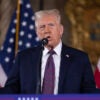Anyone who doubts the value of money spent on competition in the world of ideas – a key aspect of public diplomacy – needs to take a look at what the Chinese are doing in this field. Aspiring to promote their own model of governance, in opposition to that of the United States and the West, the Chinese are investing heavily in making friends overseas. Indeed, there is a real danger of the United States being out-done, for reasons of limited resources and a lack of strategy. The Chinese have both in spades.
According to The Washington Times, Sen. Richard Lugar (R-IN), ranking member on the Senate Foreign Relations Committee, has asked Secretary of State Hillary Clinton to account for the fact that China has been able to open 60 cultural centers – so-called Confucius Centers – hosted at universities across the country, such as the University of Minnesota. The centers endow chairs in Chinese language and culture studies and partner with existing university programs, creating hubs for Chinese cultural and political influence. China has established Confucius Centers in many Asian countries, making a Chinese presence felt in a way the United States simply does not. They also allow China convenient covers for “minders” of Chinese exchange student populations in the United States and elsewhere.
The Chinese strategy goes back at least as far as 2003, when the Chinese Communist Party promulgated its White Paper “China’s Peaceful Development Road.” In Foreign Affairs magazine in 2005, Chinese strategist Zheng Bijian laid out the concept of ideological competition for all to see, “China does not seek hegemony or predominance in world affairs. It advocates a new international political and economic order, one that can be achieved through incremental reforms and the democratization of international relations.”
By comparison, the United States so far has no – zero – cultural centers (or comparable institutions) in China. During a hearing in February, Lugar grilled Secretary of State Clinton on the issue, and was told that the United States does not have the money to do what the Chinese are doing. “On the Confucius Centers, the Chinese government provides each center with $1 million to launch, plus they cover operating expenses that exceed $200,000 per year,” she said. “We don’t have that kind of money in the budget, so we are limited in the numbers that we can do.” Directors at the Confucius Centers told The Times that their grants are more modest, in the $100,000-$200,000 range, and are often partnered with existing programs. Either way, the Chinese have found a model that works in free societies.
Now, the idea that the United States cannot afford what China can afford is preposterous — with an economy three times that of the Chinese, it is hardly a matter of money. The problem here is priorities and access. In the FY 2011 budget, the U.S. State Department has asked for a modest $14.5 million to fund 8-10 American cultural centers – to serve the entire globe. And of course China does not allow the openness for the United States to partner with existing academic institutions.
Since the end of the Cold War and the demise of the United States Information Agency, public diplomacy as an arm of U.S. foreign policy has received short shrift, the primacy of Western ideas being taken for granted. That is not good enough anymore.






























